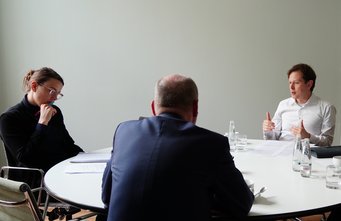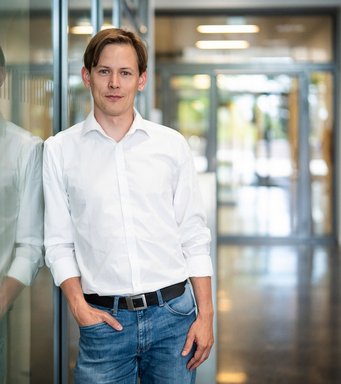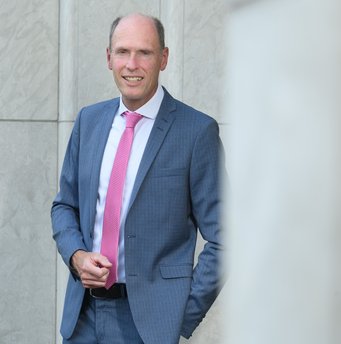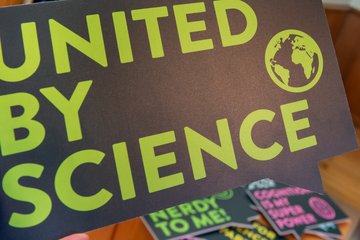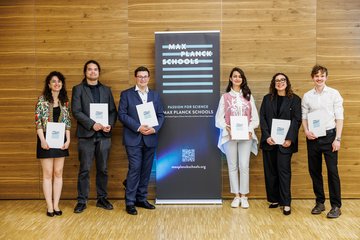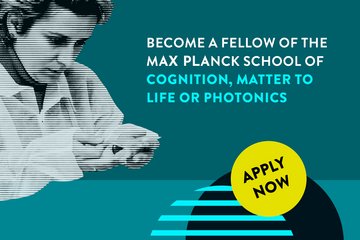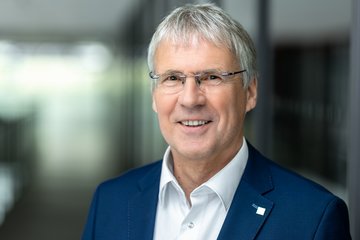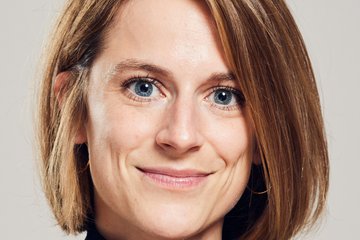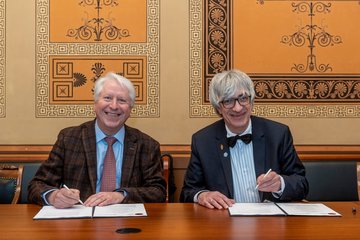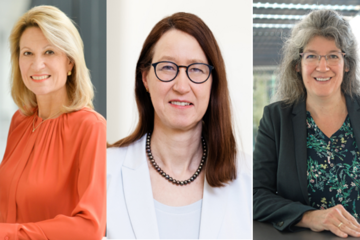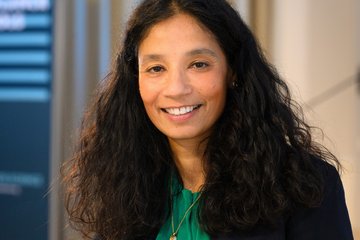"Say what you want to say!"
A conversation with Peter-André Alt and Heiko Knopf
What was initially intended as a double interview with two Max Planck Schools-”alumni” - Prof. Peter-André Alt, one of two chairs of the Schools Steering Committee until March of this year, and Dr. Heiko Knopf, a graduate of MPS Photonics - quickly developed into a lively conversation about their different perspectives on the Schools’ program, the social responsibility of science, Robert Musil and Thomas Mann, and what a Post-It has to do with Mr. Knopf's successful PhD. So we only had to ask a few questions and were otherwise allowed to listen intently to the conversation. The starting point was the question of what elements the two particularly value about the Max Planck Schools.
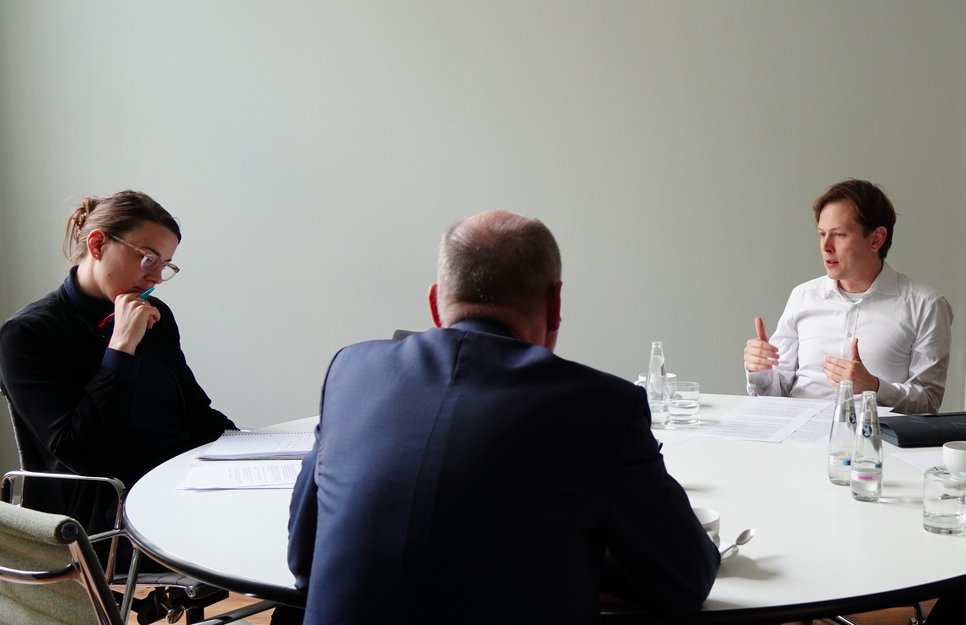
Heiko Knopf: For me, one very special and important element of the Schools is the direct access to a multi-faceted network. In everyday scientific life, one is naturally curious, but in this larger and unique network, a completely different joy of discovery opened up for me, because we had the opportunity to discuss quite openly with each other and to exchange views from the perspective of different disciplines, approaches and experiments. That's a very good, complementary aspect that created great synergies, as well as a different kind of curiosity.
Peter-André Alt: I find that very interesting, because that is exactly what I perceived and suspected from the outside view that I had of the program. That there is a mutual inspiration that is often missing in individual graduate programs. We live in we live in an increasingly specialized world. Of course, disciplines differ, from highly collaborative experiments in the natural sciences to still rather individually conducted PhD projects in the humanities. In my opinion, the great advantage of collegiate structures is that they usually bring together very different disciplines and there is a framework for exchange. The Max Planck Schools take these already existing structures even further, on the one hand because they bring together larger fields and thus different subject cultures, and on the other hand because of their international scope, which is accompanied by academic influences from a wide variety of countries - this is really something that enriches us.
Knopf: Networks can also help to deal with one's own weaknesses or to reveal structural problems in an experiment or teaching. For example, if an experiment simply doesn't work for a long time and finally proves to be impossible, in the middle of a qualification phase this would be a fundamental problem - not only for one's own work, but also because results can be missing for presentations at conferences or seminars. Discussing and disclosing such scenarios is a position for which one is not prepared, and which one also does not want to discuss immediately with a professor. This is where networks, especially with colleagues in similar career stages, can be very helpful. Having a sounding board like that is really very important.
Alt: Absolutely right. For example, in my doctoral colloquia, I always tried to create an atmosphere in which the question " You don't know that?" was not asked. And there was an explicit agenda topic for things that didn't work out. That kind of approach, in my view, helps to create such "sounding boards", as you called it.
Another special element of the Schools, for me, is the fact that cohort formation already starts in the Master's phase. Of course, that has happened from time to time in the past, but not with the same breadth or form. The Schools offer the possibility of recruiting early on and then providing the training within a scientifically very demanding Master's phase, which is immediately followed by the doctoral work. I've always thought that was a very good idea, and with this institutional diversity, it's certainly a completely new approach in that I think universities should continue to work with.
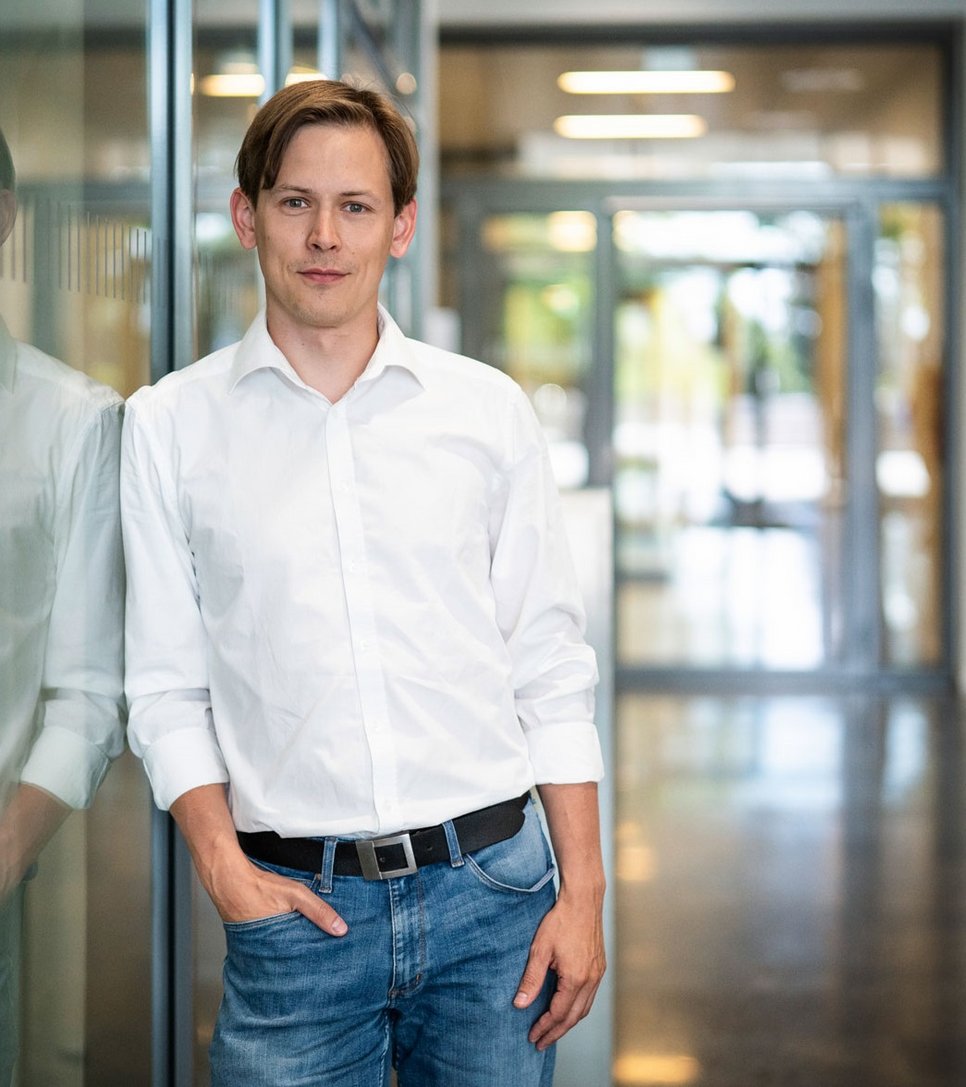
Knopf: I "only" completed my doctorate within the framework of MPS Photonics and didn't join the School for my Master's degree. But what you say is reflected by what I have heard from various colleagues, who perceived this as a form of appreciation, which of course also makes the program very attractive. Furthermore, I believe, as you do, that both different subject cultures, as well as gender diversity and national diversity add a lot of value to the program. For example, during my time as a PhD student, I had a colleague from Japan who worked very differently compared to a female colleague from Russia.
This gives rise to yet another aspect that I actually need now in my political work: the need to reduce an issue in its complexity and, in doing so, also to question my own role and the context in which I am acting. My doctoral advisor taped a note to my computer that said, "Are you saying what you really want to say, or have you been talking around it?" That's crucial in science as in politics. Because what shouldn’t happen is that we have a preconceived answer in our head that we give regardless of the actual question [laughs]. The Schools helped me a lot to question the basic framework of my own research question and methodology, because I couldn't assume that my dialogue partners already knew this basic framework.
Alt: I'm delighted that you were able to learn this important skill already during your time at the Max Planck Schools. Looking back, I don't think I was already able to do that during my PhD; in fact, I think I regularly failed in the pub to explain my German studies dissertation topic on irony in Thomas Mann and Robert Musil to friends from medicine or law [laughs]. I had to learn this competence only in my subsequent career, especially during academic teaching. At the same time, the ability to reduce complexity beyond professional discourse is also a very good feedback mechanism for one's own research and results. At the time, we were reminded of the UK, for example, in the discussion about the sense and purpose of a Max Planck School. My time as a Fellow in Cambridge and the dinners there, in addition to teaching, helped me a lot to learn this skill, especially in interdisciplinary discourse.
Knopf: ... and the college structures there, which of course also promote that ....
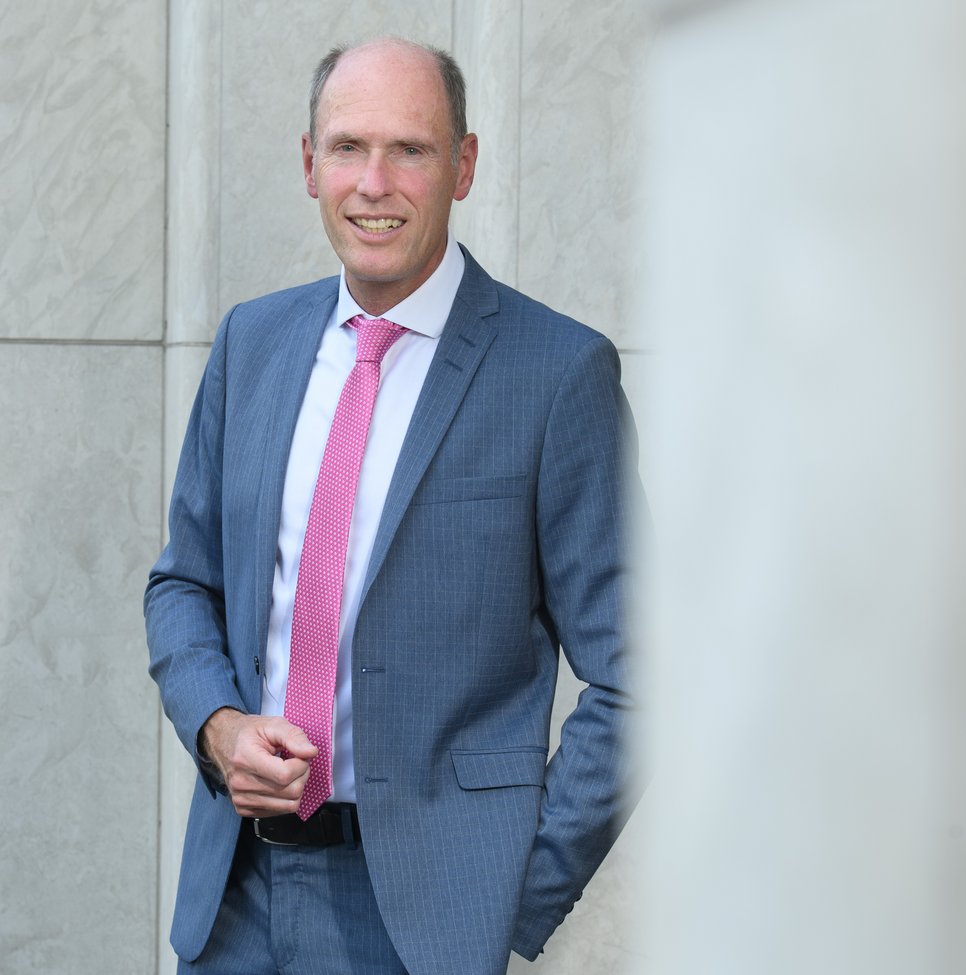
Alt: ... yes exactly, also the colleges. That's the place where you learn to discuss across the very different disciplines. Such skills have not been institutionally promoted at all in Germany. So this development process from the subject-specific colleges in the 1980s to the already much broader graduate schools to the very interdisciplinary Max Planck Schools, which act like a magnet for large research fields, was only logical.
Knopf: And when we talk about colleges or structures in other countries, we are also talking directly about the competitiveness of the German science system. We have many attractive, renowned universities and research institutions in this country, but they are competing internationally with, for example, the prestigious colleges in countries with completely different funding and structures. That's why our science system has to keep evolving and trying out new approaches. With the Schools, we now have an additional component in the system that gives us an even broader international visibility. That's something to be proud of.
Alt: I would like to come back to your previous observation about the different working methods of your fellow students from different countries. From your perspective, is that a consequence of different academic backgrounds? Or where could that come from?
Knopf: In my experience, these are academic and cultural influences. My Japanese colleagues approached problems with a great deal of structure and discipline. At the same time, they had a smart sense of humor and a relaxed approach to the work itself. Again, a colleague from Russia was insanely hands-on. For example, she didn't wait for an order of equipment to be delivered, but unceremoniously built it herself from existing utensils. And in doing so, with what we might consider a somewhat unconventional way of working, she was much faster than the rest of us. Such different approaches to research have always taken us out of the daily grind and have been a source of inspiration and creativity.
Alt: And that's exactly what we need when we talk about "training for assuming social responsibility," one of the goals of the Max Planck Schools. In order for science to be able to develop solutions, I believe it is very important that, in addition to disciplinary specialization - which is necessary for a doctorate - you also have a great deal of contextual knowledge. And this knowledge is developed - as you have just described very clearly - from different backgrounds and experiences as well as the confrontation with other disciplines and the associated change of perspective. The drive is curiosity, there are setbacks ...
Knopf: ... that you absolutely have to share!
Alt: ... yes, exactly, very important. This learning to find solutions through obstacles is an essential part of science. And in my view, this includes the ability to self-reflect on several levels: On the one hand, reflection on one's own methodology, perhaps also with the question of whether there are alternatives to this; on the other hand, the question of what one can do with the knowledge gained, or where risks lie. Because every subject also has its own history with its dark sides. These were revealed between 1933 and 1945, when German scientists participated in the crimes of the Nazi regime. Ultimately, there is probably no such thing as science that has only light sides, because science is also - dialectically, so to speak - always applicable in two directions, on the one hand to the advantage of mankind, but also to its disadvantage. That, as general as it may sound now, is a point that must also play a role in doctoral programs. This does not mean that everyone has to delve deeply into the history of science in their own field, but I think it is crucial to reflect on such aspects. For me, this is also part of the answer to the question of what doctoral students need to be given so that they are actually able to contribute to solutions for the challenges of our time: contextual knowledge, the ability to reflect, and the ability to think in terms of alternatives. From my point of view, one of the greatest qualities of science is that it analyzes what is given, but at the same time also gives us options of what can be changed for the better. In my opinion, programs like the Max Planck Schools have to teach this ability when we talk about social responsibility.
Knopf: Actually, the Schools have helped me to question myself and my responsibility to society in general. Of course, science is also a service to society; we don't do research for research's sake. Curiosity is a drive, but of course we often do research to make progress on specific problems. Science develops solutions to the challenges of our time and is a basis for evaluation - good examples here are the climate crisis or the Corona pandemic. So how do we find our way from a challenge to a solution? Scientific evidence is sometimes very clear. The societal challenges we face are many and varied. Politics has the task of embedding scientific solutions in the societal context and translating them into action that serves the good for society.
Alt: Ultimately, we are talking about "science communication”. Science often cannot offer complete and smooth solutions, and that is also a message that it should send out. But you have to be able to deliver this communication service. I am convinced that this ability must be developed in the doctoral phase, and even better, of course, in the beginning of the Master's phase. When we look at the question of what we could further develop in the Max Planck Schools, I think it would be very important to focus on this ability to communicate. Especially if there are Schools in new subject areas and the spectrum might expand. After all, science communication is not a one-sided affair; I necessarily respond to others as well, especially now in the social media. That's a complex process and an enormous challenge that has to be learned.
Knopf: Another challenge that the Schools should keep in mind, in my view, is the formation of different identities within the program, through the connection to the individual institute or university on the one hand, and the anchoring in the Schools' network on the other. The Schools do not aim to replace this first pillar, but rather to supplement it as a second pillar. And for me, the question here is whether and - if so - how this formation of different identities can be supported even better.
Alt: That is really an important question. The identity of the discipline as the first pillar and the graduate program as the second naturally also require double networking and therefore cost time - which can lead to an overload and conflicting goals. From my perspective, the most important thing here is not to overload the doctoral students. Part of the science system is also this incredible hectic pace, which can lead to a profound overburdening that even those who are established within the field are exposed to. This should not happen, especially in the early phase of the doctorate. Deceleration is important.
The German scholar Prof. Dr. Peter-André Alt was President of the German Rectors' Conference (HRK) until the end of March 2023 and in this capacity co-chaired the Steering Committee of the Max Planck Schools. Since April, he heads the newly established Wübben Science Foundation, where he focuses on the topics of promoting science at the highest international level and strengthening the scientific innovative power of universities and non-university research institutions. He regularly writes columns on science policy issues and has served on numerous national and international advisory boards.
Dr. Heiko Knopf has been deputy federal chairman of BÜNDNIS 90/DIE GRÜNEN since February 2022. He studied physical engineering as well as laser and optics technologies at the Friedrich Schiller University (FSU) in Jena - one of the nine key partner universities of the Max Planck Schools. During a research residency, he spent five months at Shizuoka University in Hamamatsu, Japan, and finally began his research work as a doctoral candidate at the Fraunhofer Institute for Applied Optics and Precision Engineering IOF and the Institute for Applied Physics at FSU. In 2021, he received his PhD as one of the first graduates of the Max Planck School of Photonics. In addition to his scientific activities, he has been politically active since 2012 and is particularly involved in climate, energy, environment, technology and community issues.
The conversation was followed by Dr. Johanna Rapp.
